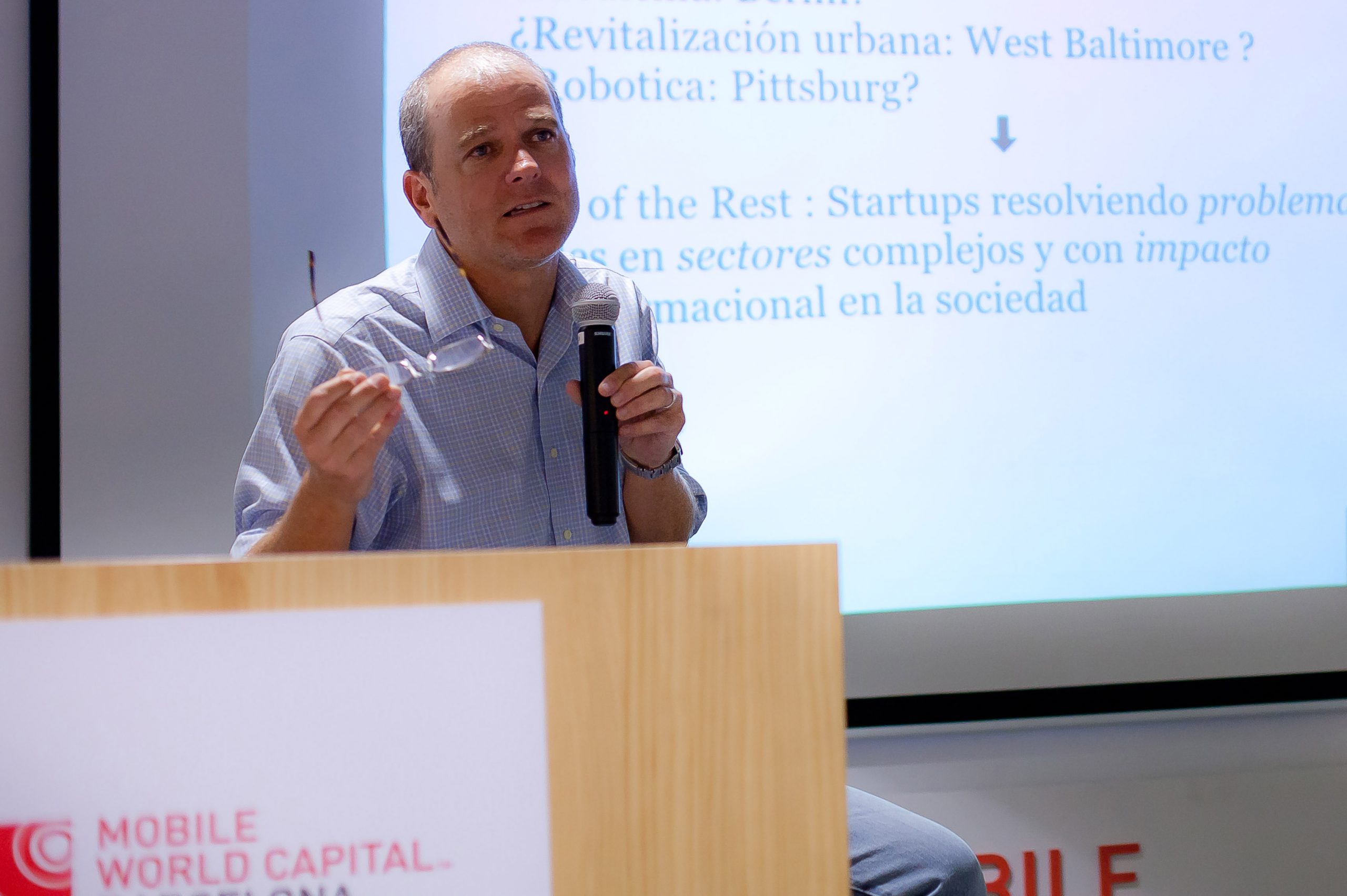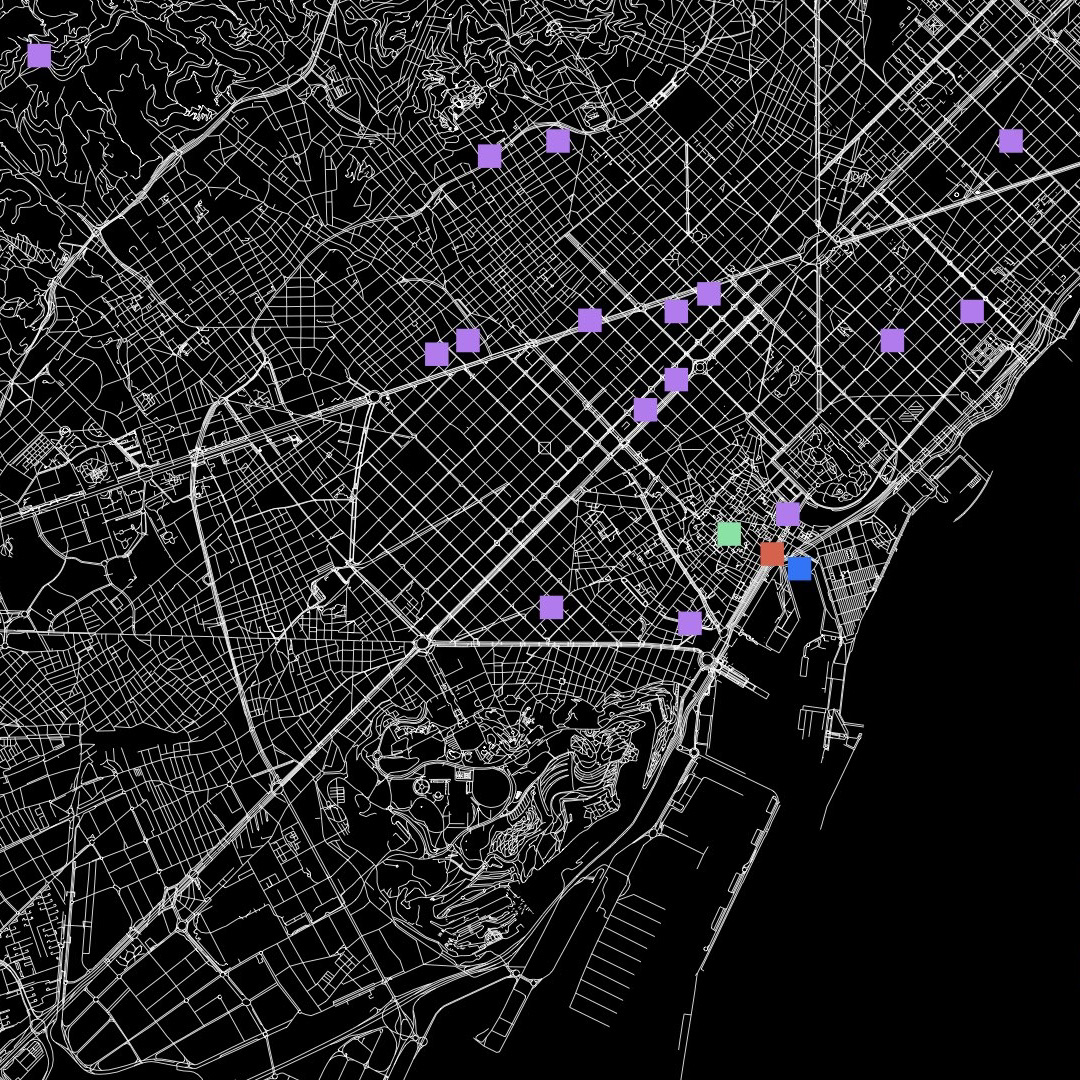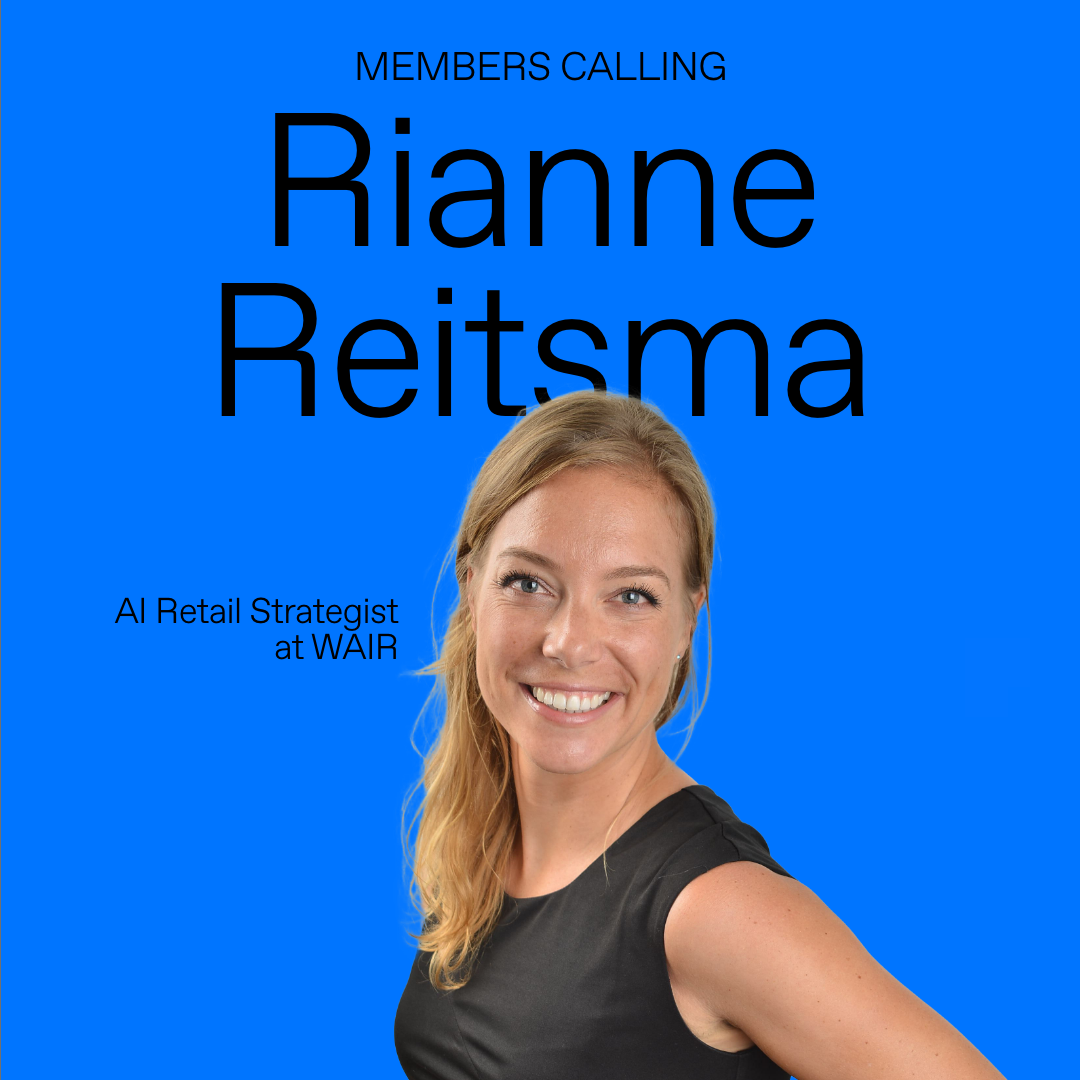Noticias
What will the startups that dominate the third wave of the Internet be like?

At Barcelona Tech City we have resumed our customary Business Break Lunches (BBL) at Pier01 with a presentation by Mauricio Prieto, co-founder of eDreams, one of the largest online travel agencies in the world. Created in Silicon Valley but headquartered in Barcelona, this startup was the first Spanish unicorn to go public, in 2014, with an initial value of 1,500 million euros. For more than 14 years, Prieto headed the process of launching and consolidating the company from different positions – from its foundation to the IPO, including different mergers and acquisitions such as GO Voyages, Opodo, Travellink and Liligo. In addition to being an entrepreneur with one of the most noteworthy careers in the Barcelona ecosystem, the co-founder of eDreams is also an investor in Startups such as ReviewPro and Beabloo, partner of Lanta Digital Ventures and an independent consultant in positioning and digital strategy. He is also a member of the Barcelona Tech City Board of Directors.
During his presentation, Mauricio Prieto described the main successes and challenges faced by what has become a leading flight search engine, and whose revenue last year exceeded 500 million euros.

Aware that the environment in which eDreams emerged has mutated and is no longer valid for new ventures, Prieto reflected on the new startups in this meeting organized by Barcelona Tech City for its members and partners, and which was also attended by his partner Javier Perez-Tenessa. Starting with the classification of “The Third Wave: An Entrepreneur’s Vision of the Future” by Steve Case, founder of AOL, Prieto explained how we have passed through two waves since the beginning of the Internet – the first, from 1985 to 1999, with the startups that built the infrastructure for an online world (AOL, IBM, Apple and Netscape), and the second, from 2000 to 2015, involving software and apps (Google, Facebook, Amazon and Booking). Now, in the incipient third wave, the model in which the emerging companies that are now large technological multinationals were created is no longer suitable for the new age.
DISRUPTION IN HIGHLY REGULATED SECTORS
Prieto emphasized that the companies that will plot the future, those in the third wave of the Internet, are those that are going to cause a disruption to the main sectors of the economy, sectors of the real world like education, transport, energy, food, agriculture, etc. “Sectors where governmental and regulatory bodies as well as Public Authorities are, by definition, more closely involved”.

MAIN SKILL: DEALING WITH REGULATION
Unlike the previous stages, “the formula of ‘going it alone’ will no longer work, AND neither the product nor virality will suffice. And the ‘better to ask for forgiveness than permission’ formula, which companies such as Google and Airbnb have used, is not going to work either”. For Prieto, new startups will have to rely on new skills and he pointed out one in particular: the ability to make agreements with bodies that act as gatekeepers in these sectors, such as government agencies, regulatory bodies, pressure groups, consumers, etc.
“Startups working with the government will play an important role. The government, for its part, will also have to adapt and support startups and projects in the new stage, while the startups, for their part, will have to adapt by working with the government. This ability to navigate the complexity of dealing with public authorities is an important skill in this new stage.
And he illustrated this with a recent case: in San Francisco there were 12 electric scooter companies operating until the city’s municipal transportation agency decided that only two were going to do this. “And those chosen are not the ones that started first, nor the ones rated highest or with more customers but the ones that adapted and worked best with the Authorities”, he stressed.

THE RISE OF THE REST
The ease of access to cloud services and tools, as well as to financing, has caused entry barriers to business to be lowered. “This is going to mean the ‘rise of the rest’, which will imply greater representation in the types of startups who set up businesses”, said the co-founder of eDreams, referring to Steve Case’s concept. “When there is a bigger presence of groups that were previously under-represented in project launches, there will be more chance to innovate.” Prieto stressed that the concept of ‘Rise of the rest’ will allow startups to resolve real problems at a local level, in very complex sectors and with a transformational impact on society.
NEW HUBS: BEYOND SILICON VALLEY
And this ‘rise of the rest’ also implies new locations as focal points for entrepreneurship, beyond Silicon Valley, the cradle of startups par excellence. The level of innovation there is very high, “but there are other places in the world that are responding more urgently to the problems they are experiencing. New cities or hubs are gaining a lot of influence in the international entrepreneurial ecosystem”, stressed this Mexican entrepreneur.
And as an example of this decentralization, here are some figures: in 2013, 56% of unicorn startups (emerging companies worth more than $1 billion) came from Silicon Valley, but the figure in 2018 was just 21%.

INGREDIENTS TO CREATE A HUB
One of the keys to the success of Silicon Valley, the thing that has made it special and has turned it into the cradle of entrepreneurship, is that top professionals want to found or work in startups. During his presentation, the co-founder of eDreams and current investor in numerous start-ups, revealed his recipe to turn a city into a technological hub:
– Prestige universities – ‘techies’ go where the other ‘techies’ go. Universities with excellent IT and engineering departments are needed. With the necessary investment, prestigious researchers and professors can be attracted and, in this way, a first-rate university institution is created that will attract first-rate people.
– A city with charm: another ingredient is to have a city with a high quality of life, in which investors and creative people want to live… This was the case with eDreams, founded by two Mexicans who decided on Barcelona as their headquarters. Prieto recognized that the quality of life in Barcelona served to attract talent.
– Successful startups: nothing succeeds like success and startups generate startups. Startup employees launch new startups and founders launch or invest in new ones.
The seed for Silicon Valley was a startup that started 60 years ago, Fairchild Semiconductor. Two of its employees decided to start their own company and this was how Intel emerged. A 2014 report stated that 70% of the 130 listed Silicon Valley companies had a direct connection to Fairchild. Another company that has had a big impact recently, establishing many connections with other startups, is Paypal.

BARCELONA, VERY WELL POSITIONED
For the ex-director of eDreams, Barcelona is very well positioned to become a technological hub. This is of course a city with charm and a good quality of life, which is attractive to both investors and creative people. There are in addition some very good examples of successful startups such as Grupo Intercom, the group that has launched most digital businesses in Spain, and with several examples of ‘exits’ such as Softonic, Infojobs, BuyVIP. “Many entrepreneurs and industry leaders have passed through Grupo Intercom at some point in their lives”, said Mauricio Prieto, who also highlighted that more than 50 startups have emerged from the ranks of eDreams, many of which have established themselves in Barcelona.
The city also has talented professionals, both from engineering universities and business schools. However, the default option for engineers leaving these schools is not to create a company.
LOCAL SOLUTIONS
In the opinion of this entrepreneur, the next emerging companies will arise in tremendously complex sectors with many stakeholders, and where startups, seeking to avoid conflict, did not traditionally enter. The next big companies will come out of these highly regulated sectors.
“Because the legislation is local, we will perhaps move to an era where local implementation will be the most critical part and the next global stakeholders to emerge might be those who have done very well in that area.” For Prieto, the third wave of the Internet will undoubtedly be both exciting and transformative.


